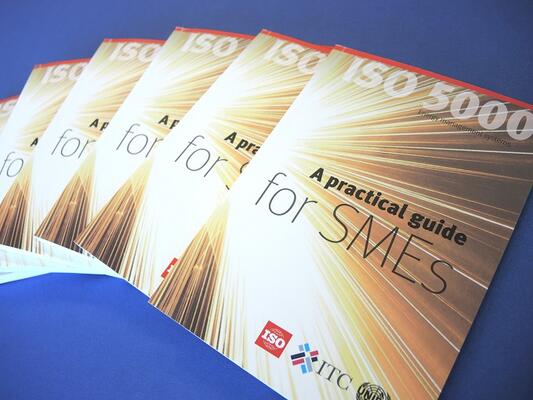
ITC, ISO, UNIDO launch guide to help SMEs upgrade energy efficiency
A new guide to help small and medium-sized enterprises understand how to upgrade energy efficiency in line with a key international standard was published today, on World Environment Day, by the International Trade Centre (ITC), the International Organization for Standardization (ISO) and the United Nations Industrial Development Organization (UNIDO).
One of the ISO’s thousands of global standards setting out specifications for products and industrial processes, ISO 50001, called ‘Energy management systems – Requirements with guidance for use’, outlines management systems and processes for companies to boost energy efficiency and reduce consumption.
Greater energy efficiency is not just good for the environment, it makes good business sense: optimizing resource use saves costs. In addition to boosting profits, enhanced energy efficiency can enhance companies’ prestige and customer trust and loyalty.
Yet SMEs, including those in fast-growing developing countries, often lag behind in implementing energy efficiency measures. This is partly due to a lack of information, inadequate competencies and resources. Closing this efficiency gap would represent major productivity and environmental gains.
The new handbook, ISO 50001: Energy Management Systems: A practical guide for SMEs, provides practical guidance to SMEs, in the form of a checklist, to develop and implement an energy management system based on ISO 50001, which would help them improve performance and reduce costs.
Liam McLaughlin, the guide’s principal author, said “It is often easier for SMEs to implement energy-saving principles than for larger organizations. This is because a small business usually has fewer layers of management, and therefore less bureaucracy, making it simpler and faster to make changes and improvements.” Better energy management, he said, would help SMEs cut costs, minimize exposure to future swings in energy prices, and make their businesses more sustainable in the long term.
ITC Executive Director Arancha González foresees that in addition to SMEs, governments will find the report useful. “Many countries are now reviewing their legislation to promote energy efficiency,” she said. “This guide will help governments assist SMEs to reduce operating costs and minimize their environmental impact.”
The ISO 50001 standard sets out a framework of requirements for organizations to develop policies for more efficient energy use; set targets to meet the policy objectives; use data to better understand and make decisions about energy use; measure results; and keep improving energy performance and management.
Based on the management system model of continual improvement used in other widely applied ISO standards, ISO 50001 is intended to provide organizations with a template for how to integrate energy management into their overall efforts to improve quality and environmental management.
Increasing energy efficiency is central to balancing developing countries’ need for economic growth to boost living standards with the global imperative to reduce humanity’s collective environmental footprint.
The publication will be distributed across ITC’s network of trade and investment support institutions, business associations with which ITC works on quality management, diplomatic missions and national ministries of energy.
ITC today also launched another environment-related publication, this one on how climate change is affecting agricultural exports from Uganda and Peru.



